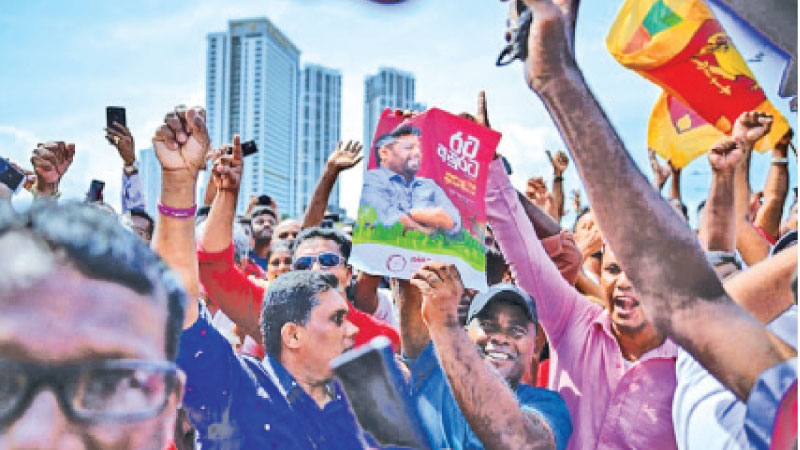On September 21, 2024, the people of Sri Lanka cast their votes and ushered in what many believe to be a bright and prosperous future under the leadership of Anura Kumara Dissanayake, popularly known as AKD, and the National People’s Power (NPP).
The following evening, the Election Commissioner officially declared AKD the winner, and on Monday, September 23, he was sworn in as Sri Lanka’s ninth Executive President by Chief Justice Jayantha Jayasuriya. This election marks a significant moment in the nation’s history, garnering praise from the European Union and foreign observers for its peaceful conduct. Remarkably, no post-election violence was reported, which is a notable departure from past election results, often marred by unrest.
The outcome of this election signals the emergence of a more civilised, cultured, and disciplined society in Sri Lanka. The NPP’s hard work seems to have paved the way for a new political culture, potentially ending the cycle of hooliganism that has plagued the country for decades.
For the first time since gaining Independence in 1948, Sri Lanka now has a Government truly elected by the people.
End of dynastic politics
For more than seventy years, Sri Lanka’s political landscape was dominated by a dynastic system. This system, entrenched in both Government and administration, has now been decisively overturned by the power of the people’s vote. The Janatha Vimukthi Peramuna (JVP), which originated in the 1970s, later evolved into the NPP and has been instrumental in this political and social transformation. This historic victory is not only a milestone for Sri Lanka but also a potential model for other Asian nations.
This election also marks the first time in Sri Lanka’s history that a political party with Marxist leanings secured such a significant victory. The success of the NPP, led by AKD, reflects the public’s desire to move away from religious and communal politics, with many traditional parties, including the Muslim Congress, facing setbacks. International observers are closely watching Sri Lanka, and Colombo-based diplomats have already begun engaging with the NPP. Several European envoys have reached out, recognising the party’s progressive vision.
The first diplomat to congratulate AKD was India’s High Commissioner to Sri Lanka, Santosh Jah. Within a day of the election, Harini Amarasuriya, the newly appointed Prime Minister, met the Indian High Commissioner. Greetings have also poured in from Japan and the US, with US Ambassador Julie Chung emphasizing the importance of strengthening transatlantic relations with Sri Lanka.
Shift in Sri Lanka’s political landscape
Since 1984, Sri Lankan politics has been dominated by the United National Party (UNP) and the Sri Lanka Freedom Party (SLFP). The rise of the NPP has effectively fractured these long-standing political forces. Ranil Wickremesinghe, a veteran politician and leader of the UNP, contested independently, a clear sign that sweeping changes are under way, pushing conventional politics to the sidelines.
The election also made history with the appointment of Sri Lanka’s first female Prime Minister of exceptional calibre. The NPP’s rapid progress highlights the public’s growing rejection of outdated, opportunistic politics.
The attempts by Sajith Premadasa and Namal Rajapaksa to continue the political legacies of their fathers have been unsuccessful. The NPP’s leadership has already won the hearts and minds of the nation, gaining the trust and confidence of the people. The party’s success is largely due to its strong support among the Muslim minority and the younger generation, who voted for the NPP in large numbers.
The writer previously served as a News Editor for the former USSR Embassy in Colombo and holds a Master’s degree from Moscow State University Institute of Foreign Languages, specialising in foreign policy and international affairs.






